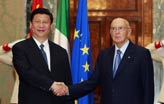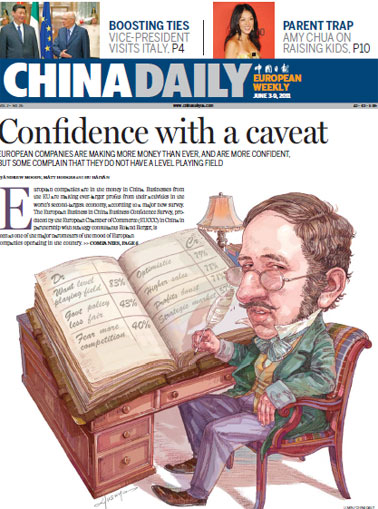Foreign and Military Affairs
Gmail hacking accusation evil-intentioned: experts
Updated: 2011-06-04 08:58
(Xinhua)
BEIJING - Google lacked evidence to support its accusations that Chinese hackers are behind the alleged cyber attacks on hundreds of its email accounts and the timing to make such accusations is evil-intentioned, Chinese experts said on Friday.
"Google's accusation is neither serious nor credible as it has not published any evidence that shows the hackers are from China," said Dai Yiqi, a cyber security expert with Tsinghua University.
| ||||
A report released in 2009 by the United States-China Economic and Security Review Commission, an organization created by the US Congress, claimed that Jinan is the home of a Chinese military reconnaissance office.
An anonymous cyber security expert believes, despite Google not referring to the Chinese government in the latest attack claim, the company is targeting the Chinese government by listing the victims of the attacks as those whom only the Chinese government are interested in.
"Both their intentions and the timing of the accusation are dubious," Dai said.
Google's accusation followed on the heel of the reported Pentagon's first formal cyber strategy. The Wall Street Journal reported Tuesday that the Pentagon concluded that computer sabotage coming from another country can count as an act of war and the United States may respond by using traditional military force.
Li Shuisheng, a research fellow with a top military science academy of the People's Liberation Army, believes there are political motives behind Google's accusation.
Google may well have attempted to instigate a new round of the cyber row between China and the United States, Li said.
Wednesday's accusation by Google came more than a year after the company allegedly uncovered a cyber attack on its systems that it said it traced to China.
In January, 2010, Google said it had been attacked by hackers supported by the Chinese government, and later announced to withdraw from Chinese mainland. The row ended up with Google redirecting Chinese mainland users to a site in Hong Kong.
In such cyber attacks, it is easy to locate the IP address of hackers but hard to tell where the hackers actually are, said Dai.
"Hackers usually launch attacks by camouflaging their own IP addresses or controlling computers of others. Therefore, we can hardly tell the location of the hacker unless we have sufficient evidence," he said.
China is one of the leading targets of cyber attacks. It has the world's largest number of computers infected with bot, a type of malware which allows a cyber attacker to gain control over the affected computer. About 13 percent of the world's computers infected with bot are in China.
"Without cooperation between governments, absolute security cannot be guaranteed in cyber community," said Li , adding only cooperation can ensure safe information exchange.
E-paper

Harbin-ger of change
Old industrial center looks to innovation to move up the value chain
Chemical attraction
The reel Mao
Improving app-iness
Specials

Vice-President visits Italy
The visit is expected to lend new impetus to Sino-Italian relations.

Birthday a new 'starting point'
China's national English language newspaper aims for a top-notch international all-media group.

Sky is the limit
Chinese tycoon conjures up green dreams in Europe with solar panels



